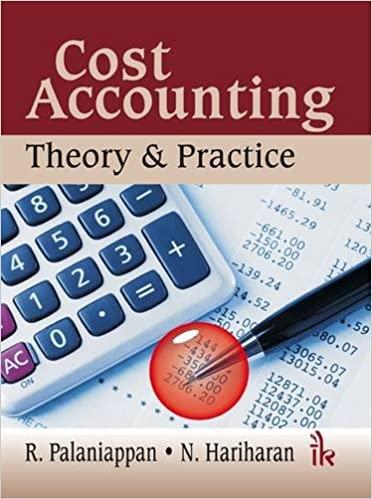Answered step by step
Verified Expert Solution
Question
1 Approved Answer
use R if needed The table below refers to ratings of agricultural extension agents in North Carolina. In each of 5 districts, agents were classified

use R if needed
The table below refers to ratings of agricultural extension agents in North Carolina. In each of 5 districts, agents were classified by their race and by whether they got a merit pay increase. The data can be load in R using the R codes below Whites Yes No Race Blacks Merit Pay Yes No District NC 24 9 NE 10 3 NW 5 4 SE 16 7 SW 7 4 47 45 57 54 59 12 8 9 10 12 PayYes c(24,10,5, 16,7,47,45, 57,54,59) PayNo = c(9,3,4,7,4,12,8,9,10,12) District rep (c("NC", "NE", "NW", "SE", "SW"), 2) Race = c(rep("Blacks",5), rep("Whites",5)) data.frame (Race, District, PayYes, PayNo) (a) (10 pts) Fit a logistic regression model with the main effects of race and district but no interaction. Show how you test whether the merit pay increase is independent of race, conditional on the district using a Wald test and a LR test about a parameter in the logistic regression model you just fit. (b) (10 pts) Estimate the common odds ratio between Merit Pay and Race based on the logistic model in the previous part, and report the 95% Wald confidence interval and the 95% likelihood ratio confidence interval for the common odds ratio. Interpret the confidence intervals. (C) (10 pts) Test whether the association between merit pay decision and race is homogeneous across the five districts using a likelihood ratio test. Please report the test statistic, degrees of freedom, P-value, and then make conclusion. The table below refers to ratings of agricultural extension agents in North Carolina. In each of 5 districts, agents were classified by their race and by whether they got a merit pay increase. The data can be load in R using the R codes below Whites Yes No Race Blacks Merit Pay Yes No District NC 24 9 NE 10 3 NW 5 4 SE 16 7 SW 7 4 47 45 57 54 59 12 8 9 10 12 PayYes c(24,10,5, 16,7,47,45, 57,54,59) PayNo = c(9,3,4,7,4,12,8,9,10,12) District rep (c("NC", "NE", "NW", "SE", "SW"), 2) Race = c(rep("Blacks",5), rep("Whites",5)) data.frame (Race, District, PayYes, PayNo) (a) (10 pts) Fit a logistic regression model with the main effects of race and district but no interaction. Show how you test whether the merit pay increase is independent of race, conditional on the district using a Wald test and a LR test about a parameter in the logistic regression model you just fit. (b) (10 pts) Estimate the common odds ratio between Merit Pay and Race based on the logistic model in the previous part, and report the 95% Wald confidence interval and the 95% likelihood ratio confidence interval for the common odds ratio. Interpret the confidence intervals. (C) (10 pts) Test whether the association between merit pay decision and race is homogeneous across the five districts using a likelihood ratio test. Please report the test statistic, degrees of freedom, P-value, and then make conclusionStep by Step Solution
There are 3 Steps involved in it
Step: 1

Get Instant Access to Expert-Tailored Solutions
See step-by-step solutions with expert insights and AI powered tools for academic success
Step: 2

Step: 3

Ace Your Homework with AI
Get the answers you need in no time with our AI-driven, step-by-step assistance
Get Started


